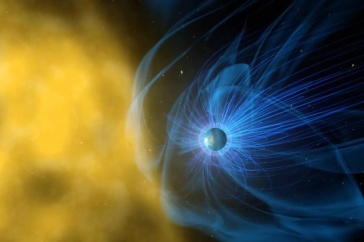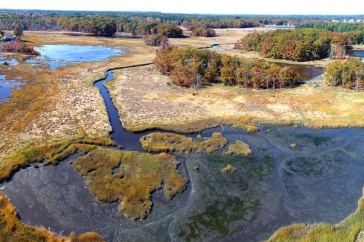
Harlan Spence has been appointed to the
Space Studies Board of the National
Academy of Sciences.
Harlan Spence, director of UNH’s Institute for the Study of Earth, Oceans, and Space, has been appointed to the Space Studies Board of the National Academy of Sciences (NAS). Spence, who is a professor of physics with expertise in solar and space plasma physics, began his two-year term July 1. Spence was selected to serve on the 22-person board by outgoing NAS president Ralph Cicerone.
“It is quite an honor and humbling,” says Spence. “The Space Studies Board is the top-level board within the National Academy of Sciences dealing with all things space. I look forward to adding my voice to the board’s important work for the nation.”
NAS is a private, nonprofit society of distinguished scholars charged with providing independent, objective advice to the nation on matters related to science and technology. The Space Studies Board provides an independent, authoritative forum for information and advice on all aspects of space science and applications.
“This appointment is a wonderful opportunity for Harlan to share his expertise and that of the entire UNH space science program with the wider NAS as it supports scientific progress and helps us understand solar and space physics,” says Jan Nisbet, senior vice provost for research at UNH.
Spence leads a research group that studies the physics of cosmic plasmas known as “space weather” using experimental and modeling techniques. He and his team develop and use physics-based, numerical models to understand the powerful dynamics of space weather and the negative effects it has on space technologies and astronauts. Spence is principal investigator or co-investigator on several ongoing NASA missions, including the Van Allen Probes and Magnetospheric Multiscale (MMS) missions. He serves on national committees that advise NASA and the National Science Foundation on future space missions and research programs, is a frequent reviewer of publications in top journals and proposals to funding agencies, and has spoken before national lawmakers on the importance of safeguarding our communications, navigation and energy distribution assets from space weather threats.
Established by an Act of Congress, signed by President Abraham Lincoln in 1863, the NAS is charged with providing independent, objective advice to the nation on matters related to science and technology. Scientists are elected by their peers to membership in the NAS for outstanding contributions to research. The NAS is committed to furthering science in America, and its members are active contributors to the international scientific community. Nearly 500 members of the NAS have won Nobel Prizes, and the Proceedings of the National Academy of Sciences, founded in 1914, is today one of the premier international journals publishing the results of original research.
-
Written By:
Beth Potier | UNH Marketing | beth.potier@unh.edu | 2-1566

















































